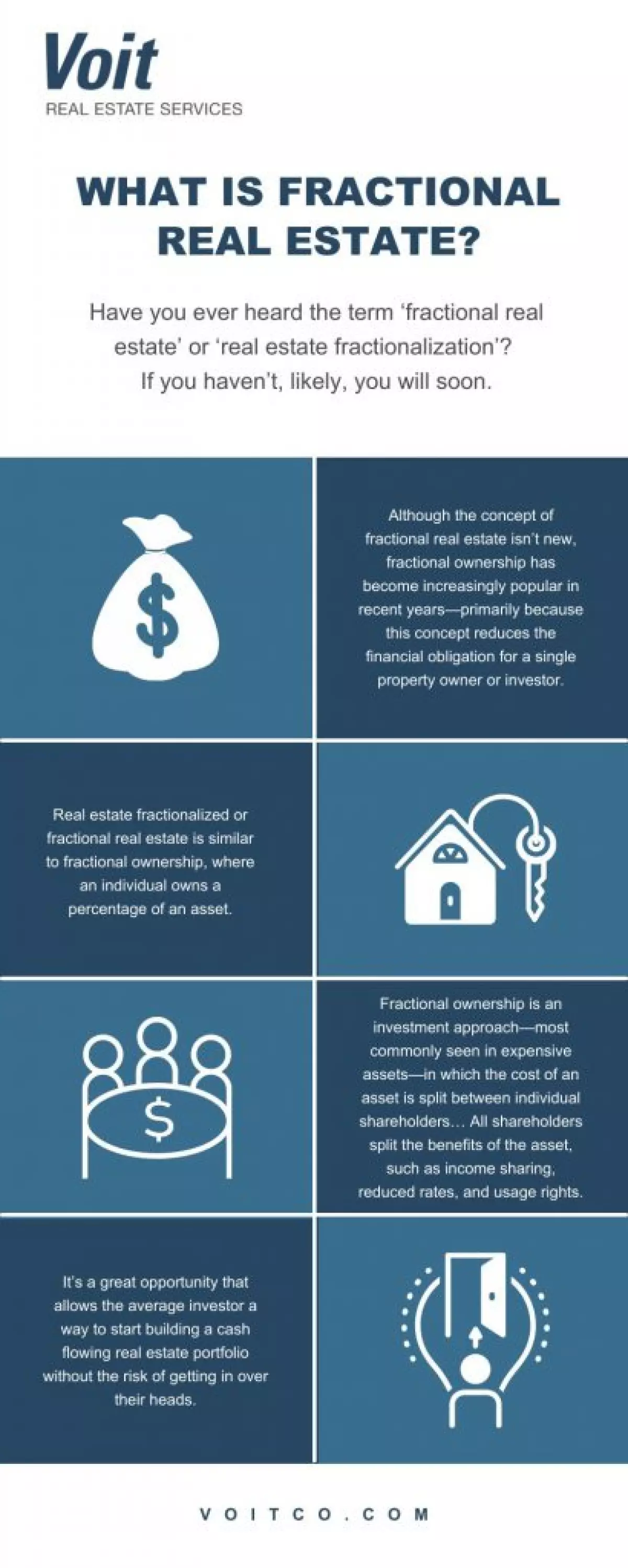Have you ever wondered about the concept of fractional real estate or real estate fractionalization? If you haven't, you're about to learn something new and exciting.
What is Real Estate Fractionalization?
While fractional real estate is not a new idea, it has gained popularity in recent years because it offers a solution to the financial burden of owning a property. Fractionalized real estate, also known as fractional ownership, allows individuals to own a percentage of an asset.
The concept of fractional ownership is commonly seen in expensive assets, where the cost is divided among shareholders who then share the benefits of the asset, such as income sharing, reduced rates, and usage rights.
Why Fractional Real Estate?
According to Benzinga, fractional real estate investments are on the rise. This concept provides an excellent opportunity for average investors to build a cash-flowing real estate portfolio without the risks associated with traditional property ownership.
One of the main advantages of fractional real estate is that it eliminates the need for investors to deal with tenants, property management, and other financial obligations. This begs the question of what role fractionalized real estate will play in the future.
 Infographic about "Should Startups Jump on the Fractionalized Real Estate Asset Trend?"
Infographic about "Should Startups Jump on the Fractionalized Real Estate Asset Trend?"
Startups Are Looking To Fractionalize Real Estate Assets, But Should They?
Investing in commercial real estate or vacation rental properties can be a lucrative source of passive income and potential growth. However, the high cost of entry often restricts these opportunities to the wealthy. Drew Sterrett, co-founder of LEX, identified this problem and came up with a solution.
LEX, a New York-based startup, acts as a securities broker, facilitating public offerings of shares in commercial buildings. By breaking up the ownership into tranches, LEX allows accredited and non-accredited investors to buy and trade shares on their marketplace. This approach eliminates the financial hurdle and brings real estate investing opportunities to a wider audience.
LEX is not the only startup capitalizing on the concept of fractionalizing real estate assets. Here, a Miami-based company, offers a marketplace for stakes in existing vacation rental properties, while Vesta Equity in Toronto allows homeowners to tokenize and sell portions of their ownership as NFTs. All these startups aim to democratize real estate investments and lower barriers to entry, but there are skeptics.
Clelia Warburg Peters, a proptech investor, questions whether the average investor is prepared to handle the nuances of the real estate asset class. She also highlights the need for education and the associated risks of investing directly in private assets. Market analysts point out that the current market conditions may not favor this strategy, with the cooling demand and affordability of homeownership potentially diverting customers from fractional real estate investments.
Despite the arguments against it, the startup founders believe their offerings are no riskier than other popular investment options, such as stock trading or backing early-stage startups. LEX and Here emphasize their due diligence in selecting investment options, ensuring strong performance and financial stability. The demand for these startups is evident, with thousands of potential members on waiting lists eager to invest.
These real estate investing startups provide a new path for retail investors to diversify their assets and gain access to opportunities previously restricted to institutional or wealthy investors. They also offer homeowners a new way to gain liquidity without having to sell their properties.
While it's still too early to determine the success and impact of these startups, their mission of democratizing real estate investments is noteworthy. Fractional real estate certainly has the potential to reshape the way we invest in properties, but only time will reveal its true outcome.

















